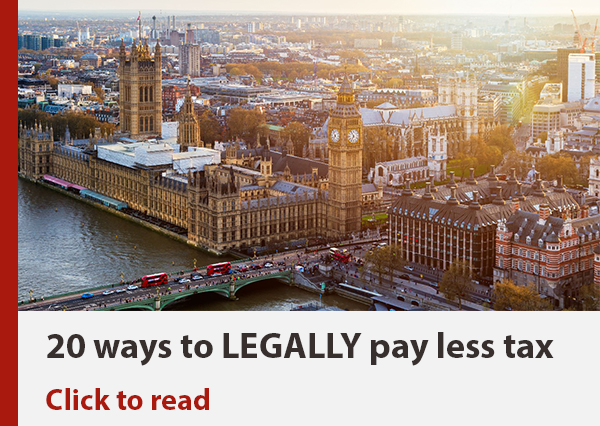How to boost your pension at every stage of your life

If your pension pot isn't quite as big as you hoped, here are 24 ways to give it a helping hand before you retire.
If you know how to play the pensions game, you'll give yourself a much better chance of squeezing a higher income from your pension pot.
Here are 24 ways to do just that:
Before you retire
1. Get started early
One of the biggest factors in the eventual size of your pension pot is not just how much you save each month, but how long you’ve been saving for.
That’s because of the way the money you save compounds over time, so getting started early with your pension saving ‒ even if you’re only putting aside small sums ‒ is a powerful move.
2. Save more now
Topping up your pension in the run-up to your retirement is a great way of boosting its value with tax relief and capital growth over the coming years.
In fact, saving in a pension is one of the most tax-efficient things you can do.
Manage all your savings accounts in one place with Raisin, the simple savings service
3. Get free money from your work
The auto-enrolment scheme means that employers have to open a pension on your behalf and contribute to it too.
That’s effectively free money from your bosses, with the only downside that you can’t spend it until you retire.
Getting the maximum contributions from your employer will mean you have a bigger pension pot when you retire.
4. Use savings to supplement your retirement income
ISAs offer a great way to save tax-free, which can supplement your pension.
What’s more, Lifetime ISAs are designed to boost the money you save each year with free cash from the Government, so long as you use that money for your retirement or a deposit on a house.
5. Defer your State Pension
Defer for up to five years and you could dramatically increase your income from the State Pension.
Find out how in Deferring your State Pension: how much can you get and is it worth it?
6. Buy back 'missing years'
This allows you to buy 'missing years' to close the gap in your National Insurance Contributions (NICs) record, qualifying you for a full State pension.
Check out our run-through in: How to top up your State Pension.
7. Check if you qualify for Pension Credit
Pension Credit guarantees a minimum income of £201.05 per week if you're single, or £306.85 per week for couples.
If you're entitled to this top-up, you'll need to claim it from The Pension Service. Find out more at Gov.uk.
8. Retire later
This will give your pension the chance to increase in value over time and potentially yield more income.
Plus, annuity rates are higher the older you get, which will improve your income too.
9. Take tax-free cash
You can take up to 25% of your pension pot as tax-free cash.
Tax-free equals more money in your pocket!
10. Take tax-free cash but defer your pension
If you can afford it, leave the remaining 75% of your pension invested for as long as possible.
It could grow in value and provide a larger income in the future.
Of course, if it's invested in the stock market, it could fall in value as well.
11. Recover lost pensions
A forgotten scheme can really help to increase your income.
Start your search using the Pension Tracing Service.
12. Transfer old pensions
If there are still a few years left before you retire, think about transferring pensions which aren't doing well.
The value may recover in a better home.
Turning your pension into an income
The pension freedoms mean pension savers have more say over how their cash is handled once they retire.
There are certain steps to follow in order to get the best possible value out of an annuity, while there are other options to consider too.
13. Use the Open Market Option
Don't necessarily take the annuity offered by your pension provider.
Shop around for the highest rates first. This is called using the Open Market Option.
14. Take advantage of Guaranteed Annuity Rates
Some older-style pensions come with guaranteed annuity rates attached, which could be far higher than current annuity rates and deliver a big increase to your income in retirement.
15. Use your health to boost your income
If your lifestyle means your life expectancy is below average, for example, if you smoke or you're overweight, you could qualify for higher rates from a special Smoker or Enhanced annuity.
Read our guide around what to disclose when buying an annuity to learn more.
16. Use your health to boost your income even more
If you suffer from a serious medical condition you may qualify for even higher rates by applying for an Impaired Life Annuity.
This could increase your income substantially compared with a standard annuity.
17. Use your postcode
People living in deprived areas are likely to have a lower life expectancy than those who live in affluent areas and therefore receive higher annuity rates in return.
|
PROMOTION
|
||
|
18. Consider a with-profits annuity
These annuities are invested in a with-profits fund and have the potential to provide a rising income if the fund performs well.
You'll also be guaranteed a minimum level of income. But they can be risky, meaning your income could drop.
19. Defer your annuity
Older people get higher annuity rates so the longer you leave it the better.
20. Cash in your small pots
If you have a small pension pot (worth less than £10,000) then you can cash it in all in one go, without paying anything in tax.
Importantly, this applies if you have a series of pensions all worth less than this amount too.
21. Retire in stages
Taking your pension in small chunks can be highly tax-efficient.
You'll be entitled to 25% tax-free cash from each chunk and a small pension income from the remainder which may only trigger a low income tax charge, particularly in the early years before your pension income builds up.
And finally
22. Don’t take it until you need it
It sounds pretty obvious but the longer you leave your pension the better as it has more time to accumulate a bigger pot.
23. Get some advice
If you want to make the most of your pension pot then it can pay to get some guidance.
There are free pensions guidance sessions on offer from Pensions Wise, the Government service for the over-50s.
24. Avoid pension scams
Unfortunately, the pension freedoms have opened the door to scammers, making pension scams far more common.
Check out our run-through of common pension scams and how to avoid falling for them.
*This article contains affiliate links, which means we may receive a commission on any sales of products or services we write about, but it won't affect the price you're offered. This article was written completely independently.
Comments
Be the first to comment
Do you want to comment on this article? You need to be signed in for this feature

